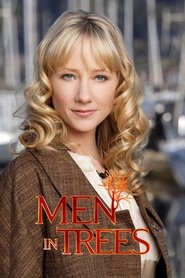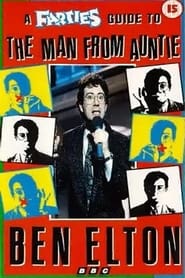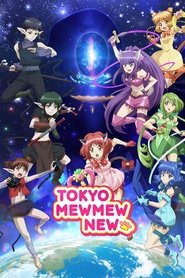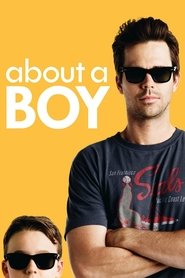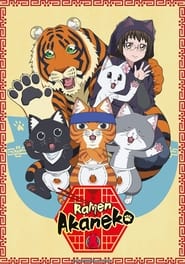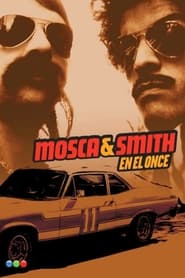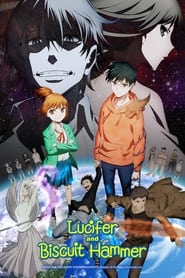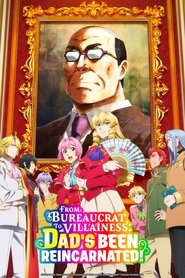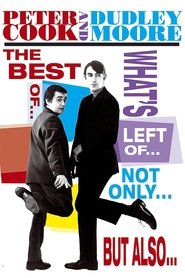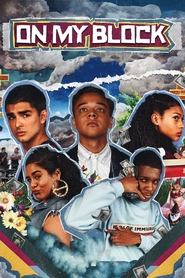Popular Comedy TV Shows on Tub Tv - Page 151
-
Along for the Ride with David O'Doherty
2021
star 2Comedian David O'Doherty gets to know celebrities on cycling adventures across the UK in a fun-filled interview show that delivers lots of laughter, proper conversation and stunning scenery. -
Men in Trees
2006
Men in Trees
2006
star 6.6Relationship coach Marin Frist knows what to look for, what to avoid and what will make her happy. As the many fans of her two bestselling books could tell you, we're all in charge of our own happiness. But like many people full of advice, she fails to apply it to herself. On her way to a speaking engagement in Alaska, she learns that her fiancé has cheated on her. Slapped in the face with personal failure, a snowstorm then leaves her stuck in a small town full of the one thing she really doesn't need—available men. -
Great News
2017
Great News
2017
star 6.6A New Jersey mom puts her relationship with her daughter to the test when she lands an internship at the same TV station where her daughter works. -
Ben Elton: The Man from Auntie
1990
Comedy series written and performed by Ben Elton, primarily based around his stand-up comedy routines, with sketches and parodies. -
Tokyo Mew Mew New
2022
Tokyo Mew Mew New
2022
star 7.5The scientists of the μ(Mew) Project use DNA of endangered species to create a team of heroines imbued with amazing abilities. Armed with the skills of an Iriomote cat, Ichigo must band together with other Mew Mew girls to repel an alien incursion. -
About a Boy
2014
About a Boy
2014
star 6.2Will Freeman lives a charmed existence as the ultimate man-child. After writing a hit song, he was granted a life of free time, free love and freedom from financial woes. He's single, unemployed and loving it. So imagine his surprise when Fiona, a needy single mom and her oddly charming 11-year-old son, Marcus, move in next door and disrupt his perfect world. When Marcus begins dropping by his home unannounced, Will's not so sure about being a kid's new best friend, until, of course, Will discovers that women find single dads irresistible. That changes everything and a deal is struck: Marcus will pretend to be Will's son and, in return, Marcus is allowed to chill at Will's house. Before he realizes it, Will starts to enjoy the visits and even finds himself looking out for the kid. In fact, this newfound friendship may very well teach him a thing or two that he never imagined possible - about himself and caring for others. -
Our Home's Fox Deity
2012
Our Home's Fox Deity
2012
star 7Our Home's Fox Deity. is a Japanese light novel series by Jin Shibamura, with illustrations by Eizō Hōden. The first novel was released in February 2004, and as of October 2007, seven volumes have been published by ASCII Media Works under their Dengeki Bunko imprint. A manga adaptation by Suiren Shōfū started serialization in MediaWorks' Dengeki Comic Gao! magazine in February 2007; the manga transferred to ASCII Media Works Dengeki Daioh in April 2008 after the former was discontinued in February 2008. A 24-episode anime adaptation, produced by Zexcs, aired in Japan between April and September 2008. NIS America licensed the anime series under the title Our Home's Fox Deity. released it in North America. -
Romantic Killer
2022
Romantic Killer
2022
star 8.3Living her best single life, romance is the last thing on Anzu's mind — until a tiny match-making wizard suddenly turns her life into a clichéd romcom. -
New Life Begins
2022
New Life Begins
2022
star 6.9Because of a marriage election, girls from all over the world gather in Xinchuan. Yin Zheng, the sixth young master of Xinchuan, and Li Wei, who only wants to lose the election and live comfortably in her hometown, accidentally meet. There, a new interesting and fun chapter of their lives start. As Yin Zheng opens his house and goes to court, the two of them gradually grow closer, and spend everyday through all four seasons together. They grow together with other siblings of different personalities and fates, writing the warm daily life of the Xinchuan family together. -
Ramen Akaneko
2024
Ramen Akaneko
2024
star 5.8Tamako, a human, arrives at Ramen Akaneko, run solely by cats, for a part-time job interview. Her honesty about being a dog person gets her hired, and she becomes the caretaker of the cats at the restaurant. A story of both cat and human relationships, told through the interactions with both feline staff and customers. Enjoy your extra-large serving of heartwarming and endearing moments at Ramen Akaneko. -
Take Two with Phineas and Ferb
2010
star 7.6Have you ever wanted to see Jack Black interviewed by cartoon characters? Now's your chance. Step brothers Phineas Flynn and Ferb Fletcher have an animated talk show set complete with a desk, chairs and skyline backdrop. Each episode, a celebrity (in live-action form) takes a seat on the cartoon set and answers questions posed by the titular pair. -
Mosca & Smith en el Once
2004
star 2A buddycop min-series spoofing 70' american series like "Stasky & Hutch", Melchor Mosca and Carlos Smith are two unortodox cops who love parties and prostitutes, but somehow allways solve the case. They operate in El Once, one of the most inmigrant-heavy districts in Buenos Aires, with lots of fleamarkets and shady stores, but Mosca and Smith lived there all their lifes, so they allways know where to go and to who ask questions when there is a crime. -
Wreck
2022
Wreck
2022
star 5.7Aboard the mega cruise ship Sacramentum, 20-year-old new recruit, Jamie, infiltrates the 3000-strong crew in a desperate race to find his missing sister. She was working aboard the same vessel on a previous tour and vanished mid-charter. -
Lucifer and the Biscuit Hammer
2022
star 5.4Everything about college student Amamiya Yuuhi is average: grades, looks and his blasé outlook on life. So what happens when he awakens one day to a talking lizard, who informs him that there is a gigantic hammer in outer space, poised to split the Earth into pieces, and requests his allegiance in the fight against the forces of evil? Pretend it never happened! Unfortunately for Yuuhi, a little bit of coercion in the form of a super-powered princess prevents him from returning to his mediocre life-as-usual. In the adventure of his lifetime, Yuuhi will join forces with the unpredictable princess and seek out a motley crew of companions to fight back against an evil mage and his horrifyingly powerful homunculus before the Biscuit Hammer destroys the planet! -
From Bureaucrat to Villainess: Dad's Been Reincarnated!
2025
star 7.5After being struck by a car, 52-year-old civil servant Kenzaburou Tondabayashi finds himself reincarnated as the villainess of his daughter’s favorite video game! Committed to his role as the haughty and arrogant Grace Auvergne, Kenzaburou plays out Grace’s part in the game’s story… Except his kind nature and elegant Japanese manners accidentally turn the unlikeable Grace into the most admired girl in school instead. -
Love Life
2020
Love Life
2020
star 7A romantic comedy anthology series which follows a different protagonist each season on the journey from first love to last love, with each half-hour episode chronicling one of their relationships. -
The Best of What's Left of Not Only But Also
1990
star 10Pete and Dud reunite after 20 years apart to introduce a six part trip to memory lane. Of all the material from their 1965-1970 television shows which had not been wiped by the British Broadcasting Corporation, the two of them selected their favourite sketches and routines to be broadcast once more for the benefit of an entirely new generation. -
Kung Fu Panda: The Paws of Destiny
2018
star 7.2As the Dragon Master, Po has endured his fair share of epic challenges but nothing could prepare him for his greatest one yet-as a Kung Fu teacher to a group of rambunctious kids from Panda Village who have been imbued with a mysterious and powerful chi energy. Together they embark on amazing adventures, battle ferocious villains, and become legends! -
On My Block
2018
On My Block
2018
star 8.3In a rough Los Angeles neighborhood, four smart, funny and streetwise teens find their lifelong friendship tested as they begin high school.
 Netflix
Netflix
 Amazon Prime Video
Amazon Prime Video
 Apple iTunes
Apple iTunes
 Apple TV Plus
Apple TV Plus
 Disney Plus
Disney Plus
 Google Play Movies
Google Play Movies
 Paramount Plus
Paramount Plus
 Hulu
Hulu
 HBO Max
HBO Max
 YouTube
YouTube
 fuboTV
fuboTV
 Peacock
Peacock
 Peacock Premium
Peacock Premium
 Amazon Video
Amazon Video
 The Roku Channel
The Roku Channel
 AMC+
AMC+
 Kocowa
Kocowa
 Hoopla
Hoopla
 The CW
The CW
 Vudu
Vudu
 Starz
Starz
 Showtime
Showtime
 PBS
PBS
 Pantaflix
Pantaflix
 FXNow
FXNow
 Tubi TV
Tubi TV
 Kanopy
Kanopy
 Comedy Central
Comedy Central
 Crunchyroll
Crunchyroll
 Microsoft Store
Microsoft Store
 Redbox
Redbox
 Sun Nxt
Sun Nxt
 ABC
ABC
 DIRECTV
DIRECTV
 Crackle
Crackle
 Fandor
Fandor
 Plex
Plex

